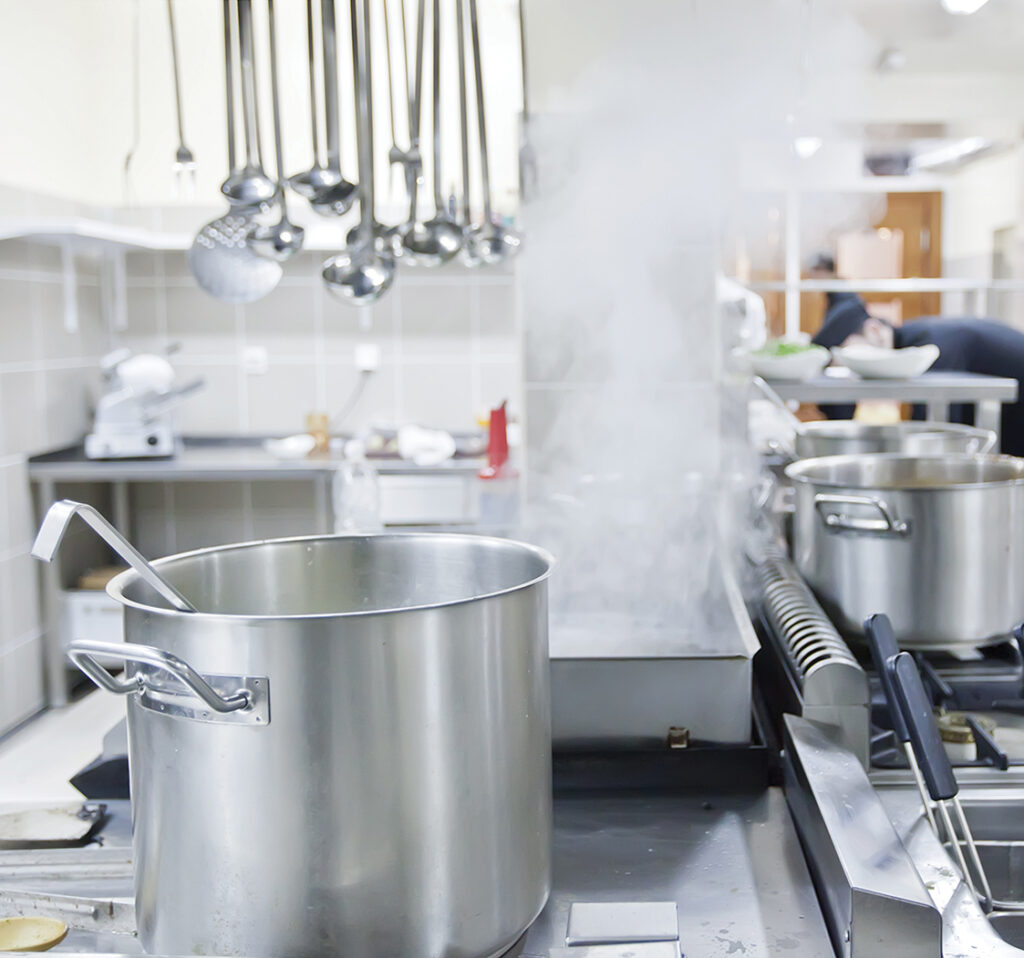Tips for determining the value of your company and presenting it to potential buyers
By Dale Vaillancourt

As a caterer, you know that meticulous preparation is the key to a successful event. If you don’t put in the work beforehand, you won’t achieve satisfying results for you and your clients.
The same philosophy applies to selling your catering business. With careful research and planning, you’ll put yourself in a much better position to reap the financial rewards of a successful transaction.
I know this from personal experience. Earlier this year, I sold the catering business I founded 43 years ago, and I couldn’t be happier with the results. In CFE’s July/August issue, I outlined how to prepare your business for sale. Once you’ve followed those steps—thereby endowing your company with peak value—you’re ready to present it to potential buyers. Following are steps to take to bring your business to market.
Arriving at a Fair Price
First you must answer the golden question: “What is my business worth?”
A quick Google search will reveal myriad methods for determining a fair value. Let me simplify the process with these two facts:
- The value of your business is what an investor is willing to pay.
- What an investor is willing to pay hinges on the amount a bank and/or the Small Business Administration (SBA) is willing to lend the investor.
I learned through my sales process that an overwhelming majority of small business acquisitions involve both a bank and the SBA, so focusing on their limits is focusing on reality.
The investor, bank and SBA are primarily interested in return on investment. Neither the bank nor the SBA will be willing or legally able to back the transaction beyond very strict limits.
Start with the numbers. Your broker will need your financial statements as a basis for the valuation process. To determine our company’s value, our broker used what he called the “banker’s method,” which focuses on return on investment—what any banker is most interested in.
In fact, your banker may be a good resource during this process. We asked ours to look at our numbers and the broker analysis to get his opinion on the proposed listing price. Because we had been with him for over 30 years, he gladly gave us his insight. In our banker’s eyes, our broker was right on.
Keep in mind: The number suggested by your broker may be lower than what you had dreamed of getting. Remember that your business, to an investor, reflects only return. You have poured your heart, soul, blood, sweat, tears and endless hours into it. Just as a guest never sees how much prep goes into an event, an investor will never grasp what you sacrificed for your business. Accept that and stay focused.
Deciding the Sale Type
There are different types of sales, such as an asset sale and a stock sale, each with its own tax implications. Enlist your broker, attorney and CPA to explain them to you.
Also determine if you are selling your real estate along with your business. If so, your real estate valuation will require an appraisal.
We did two transactions—one for the business and one for the real estate—for liability and estate purposes. This was simple, as we had two corporations. A bonus was the lower rate we paid our broker on the real estate portion. To determine if this is the right path for you, consult your professional team.
Conversely, if you want to retain ownership in your real estate, and rent back to the new owner, it could provide you with some nice income going forward. Only you can decide how much involvement you desire in the future.
Finding a Potential Buyer
Once you’ve arrived at a realistic value, the next question is: “Who are the potential investors?”
The list may include, among others:
- An existing catering operation looking to add the niche you provide.
- An individual who has high level foodservice experience and is now looking to own a business.
- One or more of your employees.
- A competitor.
- A pure investor with no foodservice background.
- A restaurant whose owner wants to expand into catering.
If a potential buyer comes to mind, I recommend you start vetting them by asking yourself this question: “Is this person capable of maintaining the legacy I established for my business?” In other words, will this person uphold and build upon the reputation you established for your company?
If you decide someone is a good candidate, discuss what you know about them with your team of professionals.

If a meeting is in order, discretion is key. Your broker or lawyer will have a confidentiality agreement for any potential interested party to sign before receiving any actual numbers. As mentioned in the previous article, it is imperative to keep the impending sale private. Nothing will alarm your employees and customers more than thinking the operation may change. You may cause an exodus if you are not very careful.
Next, work with your broker and lawyer on ways to carefully approach a potential buyer. If you do this type of mining and marketing yourself, you may want to ask your broker about a discount on fees. Remember, part of their value is finding a buyer.
If no great candidate comes to mind, your broker will compile, with your input, a blind profile, with just enough information to give a potential investor a good feel for your business without giving your identity away. That profile will then be listed on various business acquisition websites.
One of these websites is bizbuysell.com. Go to this site and nose around a bit to get a feel for listings in the catering industry. This will be valuable when writing your profile. Think as a buyer, with your broker sitting next to you, when you shop. This research can give you valuable insight on the process you are entering.
Once you are satisfied that you understand the process, you will be ready to list your business. The operation you have worked so hard to develop, grow and prepare for a sale will be on offer.
And you’ll be one step closer to sitting back, putting your feet up and planning your next move.
ABOUT THE AUTHOR

Dale Vaillancourt co-founded, co-owned and co-managed a successful catering company in the Minneapolis-St. Paul area for 43 years. He prepared for sale, then sold, his business and related real estate in 2024. To contact Dale, send an email to victoryunlimitedinc@gmail.com.










